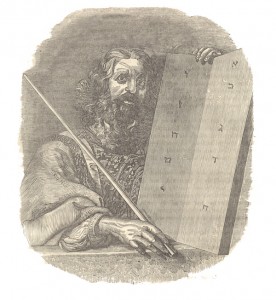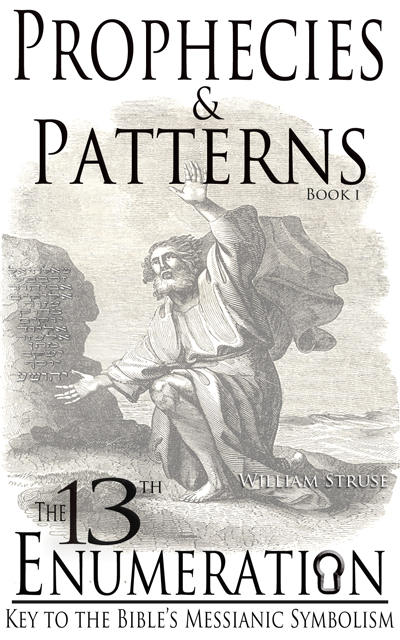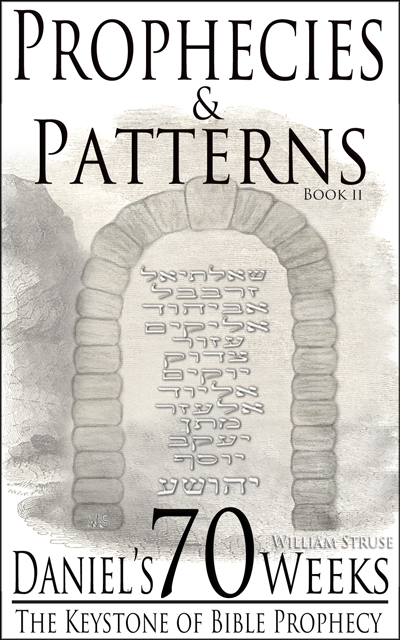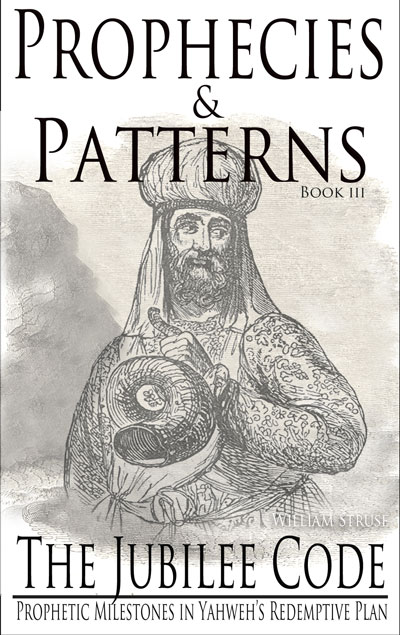 You know, the Bible has a lot to say about words. The book of Proverbs tells us that a well turned word is like “apples of gold in pictures of silver” or that a “word spoken in due season” is a very good thing. In other places in the Bible it tells us how words can be used for evil means. For instance the book of James reminds us how dangerous our tongue can be and by implication the words it issues. James opines the paradox of how we use our tongue (words) to both bless God and then curse our fellow man who is made in the likeness of God.
You know, the Bible has a lot to say about words. The book of Proverbs tells us that a well turned word is like “apples of gold in pictures of silver” or that a “word spoken in due season” is a very good thing. In other places in the Bible it tells us how words can be used for evil means. For instance the book of James reminds us how dangerous our tongue can be and by implication the words it issues. James opines the paradox of how we use our tongue (words) to both bless God and then curse our fellow man who is made in the likeness of God.
Of all the words in the Bible there are some which are in a class by themselves. The words I’m talking about are those words which are spoken directly by YHWH the living God of the Bible. The apostle Peter tells us that “by the word of God the heavens were of old”. The book of Hebrews confirms this by saying that the “worlds were framed by the word of God.” Our understanding of the Word is brought full circle by the gospel of John in one of the most profound and far reaching explanations of the Word of God.
In the beginning was the Word, and the Word was with God, and the Word was God. The same was in the beginning with God. All things were made by him; and without him was not any thing made that was made. In him was life; and the life was the light of men….
He was in the world, and the world was made by him, and the world knew him not. He came unto his own, and his own received him not. But as many as received him, to them gave he power to become the sons of God, even to them that believe on his name: Which were born, not of blood, nor of the will of the flesh, nor of the will of man, but of God.
And the Word was made flesh, and dwelt among us, (and we beheld his glory, the glory as of the only begotten of the Father,) full of grace and truth. John 1:1-14
Two thousand years ago in the most selfless act ever recorded the Word became flesh in the person of Yeshua (Jesus), so that He, the living God of the Bible, might pay the righteous penalty for our sins. How unfathomable is that?
But I have a question for you. Okay, a couple of questions…
Did you know the Bible predicted when the Word would become flesh? It’s true, in Daniel chapter 9 we find the most important Messianic prophecy in the Bible, a prophecy which gives us a detailed blueprint for the countdown to the Messiah. Now here’s my second question. Did you know this countdown to the Messiah begins with a Word? Yes, that countdown begins with a very special word. Let’s take look:
Know therefore and understand, that from the going forth of the commandment to restore and to build Jerusalem unto the Messiah the Prince shall be seven weeks, Daniel 9:25
 The above verse begins the most famous countdown in the Bible. Here it tells us that from a “commandment to restore and build Jerusalem” there will be 7 “weeks” until the Messiah or as he is called by the apostle John, the Word.
The above verse begins the most famous countdown in the Bible. Here it tells us that from a “commandment to restore and build Jerusalem” there will be 7 “weeks” until the Messiah or as he is called by the apostle John, the Word.
I know many of you have read this verse over the years but let’s look at this so called “commandment” a little closer. Scholars have long proposed four commandments or decrees issued by kings of Persia as the starting point for this prophecy. Briefly they are as follows:
- The decree of Cyrus in 536 BC.
- The decree of Darius “the Great” Artaxerxes in 520 BC
- The decree of “Artaxerxes” Longimanus in 458 BC
- The decree of “Artaxerxes” Longimanus in 444 BC
Each of the above decrees have arguments for and against them being the “commandment” of Daniel 9:25, but all of them have one thing in common. They are issued by secular rulers of Persia. But there is more to this story.
 The English word “commandment” in this text of Daniel 9 is the Hebrew word dabar. This Hebrew word is used 1439 times in the Bible and it means speech, word, or speaking. Did you know it is only used 20 times in the Bible as a “commandment”? The vast majority of the time the word dabar is used to reference the “Word” of YHWH, the living God of the Bible. Let me give you a few examples.
The English word “commandment” in this text of Daniel 9 is the Hebrew word dabar. This Hebrew word is used 1439 times in the Bible and it means speech, word, or speaking. Did you know it is only used 20 times in the Bible as a “commandment”? The vast majority of the time the word dabar is used to reference the “Word” of YHWH, the living God of the Bible. Let me give you a few examples.
To start with, let’s look at Daniel 9. Dabar is used four times in Daniel 9 and the first three times it is clearly used to reference the Words of YHWH. The final usage of dabar is the famous passage of Daniel 9:25:
Daniel 9:2 the first year of his reign I Daniel understood by books the number of the years, whereof the word [dabar] of YHWH came to Jeremiah the prophet, that he would accomplish seventy years in the desolations of Jerusalem.
Daniel 9:12 And he [YHWH] hath confirmed his words [dabar], which he spake against us, and against our judges that judged us, by bringing upon us a great evil: for under the whole heaven hath not been done as hath been done upon Jerusalem.
Daniel 9:23 At the beginning of thy supplications the commandment [word / dabar] came forth, and I am come to shew thee; for thou art greatly beloved: therefore understand the matter, and consider the vision.
Daniel 9:25 Know therefore and understand, that from the going forth of the commandment [word / dabar] to restore and to build Jerusalem unto the Messiah the Prince shall be seven weeks,
In view of the fact that the word dabar is used three other times in Daniel 9 to refer to the spoken words of YHWH as well as hundreds of other times in the same manner throughout the Bible , don’t you think it is at least worth considering that the dabar of Daniel 9:25 also refers to the Words of YHWH? I’m mean aren’t we talking about the very prophecy in the Bible which tells us the precise time when Yeshua, the living Word, came to reconcile mankind to YHWH? How could a prophecy so important begin with anything less than the dabar or word of our Creator?
For those of you who are Bereans, I challenge you to search the Scriptures to see if you can find a “word to restore and build Jerusalem”. To me anyway, one of my greatest pleasures is searching the Scriptures for the treasures YHWH has left for us to find, so I won’t spoil your own treasure hunt by giving it away in this article. What I will do is give a couple of clues to start you on your way.
- First, this “word to restore and build Jerusalem” was given by YHWH directly to, not one, but two Old Testament prophets.
- Second, Ezra the Priest and Scribe mentions this “word” in a very specific context.
- Finally, this “word” can be accurately dated by Scriptural and secular means.
Happy treasure hunting!
It is the glory of God to conceal a thing: but the honour of kings is to search out a matter. Proverbs 25:2




Good evening, William, having read your book gives me the advantage of seeing where you are going with the use of dabar as Word of YHWH in that verse in Daniel 9, and that fits perfectly with your method for figuring the timeline. So much can be lost in translation, seemingly insignificant nuances can make a huge difference; that is why I prefer Bible versions that are as faithful as possible to the wording in the manuscripts used, where the translator or editor refrains from injecting their own interpretation or belief as to what a particular verse “must really be saying” (for this reason I am not a fan of the NIV).
In reference to John 1, “In the beginning was the Word, and the Word was with God, and the Word was God”, this is a very peculiar writing. The first time I ever read that it did not make sense to me (that was a few decades ago and I was new to the Bible); later as I became a little more familiar with the meanings and usage in the time period of the Greek word “Logos” it began to make more sense to me, and I concluded the use of Logos in the passage had to have a deeper meaning than the English “Word”. In my mind at least, this ‘deeper meaning’ also helps me better understand Acts 17:28 “…for in Him we live and move and have our being…”. Anyway, look forward to your next posting. Regards.
Good afternoon Jorge,
It is amazing to me how often I catch myself taking a passage for granted then later asking myself if that is something I really understand or something I’m just repeating. The use of dabar is something I just realized as I was working on my book on Daniel 9. How many times have I read that passage knowing the “commandment” was given by YHWH but still not realizing that Daniel 9:25 used (dabar) which in its most common usage refers to the “word” of YHWH. Anyway, I thought it was pretty amazing.
I believe you are correct regarding word/logos. So much more there, in many ways unfathomable. Here is another passage along those the lines we are talking about.
2 Peter 3:5-7 5 For this they willingly are ignorant of, that by the word of God the heavens were of old, and the earth standing out of the water and in the water: 6 Whereby the world that then was, being overflowed with water, perished: 7 But the heavens and the earth, which are now, by the same word are kept in store, reserved unto fire against the day of judgment and perdition of ungodly men.
A powerful logos indeed! Thank you for your thoughts and comments.
Warm regards,
Bill
I have taught the Feasts Days since about 1983. Recently as I was teaching that Jesus was born on Tabernacles, a lady who had been in my class for years came to me with the following . . . .
She had worked in the State of Mississippi blood lab for years and has now retired from there. I emphasied that Jesus born on the Feast of Tabernacle (“And The Word became flesh and dwelt among us”) and was cricumcised on the 8th day following the 7 days of Tabernacles or Succot. She came to me after to tell me that there is a certain change in the blood that has to do with the clotting factor on the 8th. day.
I wondered if you knew of this and if so, have you done research on this? All Jewish male boys of course are usually cricumcised on their 8th day.
waiting, watching and working
Joyce Woidtke
Thanks for the blog post!
I do see how dabar can refer to a word/decree/answer/thing/message with God as the originator. Daniel 10:1 seems to broaden the scope a bit away from a ‘decree’, and a reference of http://biblehub.com/hebrew/davar_1697.htm seems to indicate that the statement “The vast majority of the time the word dabar is used to reference the “Word” of YHWH, the living God…” might be a bit over-reaching… what am I missing?
I take quite a bit of stock in Isaac Newton’s observations on Daniel (http://www.gutenberg.org/files/16878/16878-h/16878-h.htm), but perhaps I am missing something; He states: Yet threescore and two weeks shall it return, and the street be built and the wall, but in troublesome times:
…and after the threescore and two weeks the Messiah shall be cut off, and it shall not be his; but the people of a Prince to come shall destroy the city and the sanctuary, &c. Having foretold both comings of Christ, and dated the last from their returning and building Jerusalem; to prevent the applying that to the building Jerusalem by Nehemiah, he distinguishes this from that, by saying that from this period to the Anointed shall be, not seven weeks, but threescore and two weeks, and this not in prosperous but in troublesome times; and at the end of these Weeks the Messiah shall not be the Prince of the Jews, but be cut off; and Jerusalem not be his, but the city and sanctuary be destroyed. Now Nehemiah came to Jerusalem in the 20th year of this same Artaxerxes, while Ezra still continued there, Nehem. xii. 36, and found the city lying waste, and the houses and wall unbuilt, Nehem. ii. 17. vii. 4, and finished the wall the 25th day of the month Elul, Nehem. vi. 15, in the 28th year of the King, that is, in September in the year of the Julian Period 4278. Count now from this year threescore and two weeks of years, that is 434 years, and the reckoning will end in September in the year of the Julian Period 4712 which is the year in which Christ was born, according to Clemens Alexandrinus, Irenæus, Eusebius, Epiphanius, Jerome, Orosius, Cassiodorus, and other antients; and this was the general opinion, till Dionysius Exiguus invented the vulgar account, in which Christ’s birth is placed two years later. If with some you reckon that Christ was born three or four years before the vulgar account, yet his birth will fall in the latter part of the last week, which is enough. How after these weeks Christ was cut off and the city and sanctuary destroyed by the Romans, is well known….”
Where do you feel he went off? … I wouldn’t mind seeing a ‘the 70 weeks of Isaac Newton’ post :) (http://www.gutenberg.org/files/16878/16878-h/16878-h.htm#DanX)
Good evening Ben,
Thank you for your comments. In reading back through the post I see your point. If I may clarify my remarks. I should have said the vast majority of the time when dabar is used in the context of YHWH’s dealings with mankind, it refers to the “word of YHWH”. For what it is worth I’ve included a list of references at the end of this post which shows every such occurrence when dabar and YHWH are used in the same sentence. Fascinating reading for sure.
Regarding Newton and Daniel 9: Newton’s placement of Ezra and Nehemiah in the reign of “Artaxerxes” Longimanus is without Biblical chronological support. In fact much of the chronology of the 2nd temple era must be ignored or stretched in order to make Newton or Sir Robert Anderson’s theories work.
The Bible tells us that Ezra’s father (Seraiah) died in the 19th year of Nebuchadnezzar. This places Ezra as a contemporary of Darius ‘the Great’ Artaxerxes. Thus the most reasonable reading of the text places the 20th year of “Artaxerxes” in the reign of Darius ‘the Great’ Artaxerxes. The same can be said for the priests and Levites who came up with Joshua and Zerubbabel in the 1st year of Cyrus(536 BC). Many were still alive in the 20th year of “Artaxerxes”. (see Neh. 10 & 12) Again the most reasonable reading of this evidence means that the “Artaxerxes” of Ezra and Nehemiah was Darius ‘the Great’ Artaxerxes.
The bottom line is that most Biblical scholars have stretched the chronology of Ezra and Nehemiah to make Daniel 9 fit their eschatological expectations. They have done this in most cases without realizing it.
I like your idea regarding a “70 Weeks of Isaac Newton” :) I might just do that.
Have you read my book on Daniel 9? I go into great detail regarding the 2nd temple era and Ezra and Nehemiah’s place in it. If you haven’t read it yet you are welcome to download a free copy here: http://www.the13thenumeration.com/Blog13/book-download/
Warm regards,
William
Gen 12:17; 15:1, 4; 18:14; 20:18; 22:16; 24:50, 52; Exod 4:10, 28, 30; 8:10, 12f, 31; 9:4ff, 20f; 16:4, 16, 32; 18:11; 19:7ff; 24:3f, 8; 33:17; 34:1, 27f; 35:1, 4; Lev 4:13; 8:5, 36; 9:6; 10:7; 17:2; 23:37; Num 11:23f; 12:6; 14:20; 15:31; 22:8, 35; 23:3, 5, 16; 30:1f; 31:16; 32:20; 36:6; Deut 1:25, 32, 34; 2:7; 3:26; 4:2, 10, 12, 21, 30; 5:5, 22, 28; 9:5, 10; 10:4; 12:28; 13:3; 15:2, 9f, 15; 17:1, 8, 10, 19; 18:21f; 23:14; 24:18; 27:3; 28:58; 29:1, 29; 30:1; 31:12; Josh 1:13; 2:14; 3:9; 4:10; 8:8, 27; 9:24; 11:15; 14:6f, 10; 21:45; 22:24; 23:14f; 24:26, 29; Judg 2:4; 11:10f; 13:17; 1 Sam 1:23; 3:1, 7, 11, 18f, 21; 8:6, 10, 21; 12:16; 14:12; 15:1, 10f, 13, 23f, 26; 16:18; 20:21, 23; 24:6; 26:16, 19; 28:10, 18; 2 Sam 2:6; 7:4, 25; 11:27; 12:9, 14; 14:17; 22:1; 24:3, 11, 19; 1 Kgs 2:4, 23, 27, 30, 42; 5:7; 6:11; 8:20, 56, 59; 9:15; 11:10; 12:15, 24; 13:1f, 5, 9, 17f, 20, 26, 32; 14:5, 13, 18; 15:5, 29; 16:1, 7, 12, 34; 17:1f, 5, 8, 16, 24; 18:1, 21, 24, 31, 36; 19:9; 20:35; 21:17, 28; 22:5, 19, 38; 2 Kgs 1:16f; 3:12; 4:44; 5:18; 6:18; 7:1f, 16, 19; 8:13; 9:26, 36; 10:10, 17; 14:25; 15:12; 17:9, 11f; 19:4, 6, 16, 21; 20:4, 9, 16f, 19; 22:9, 13, 16, 18; 23:2f, 16, 24; 24:2; 1 Chr 10:13; 11:3, 10; 15:15; 16:37; 17:23; 21:12, 19; 22:8; 2 Chr 1:9; 6:10, 17; 10:15; 11:2, 4; 12:7, 12; 15:8; 18:4, 18; 19:6, 11; 23:19; 29:15, 30; 30:5, 12; 31:16; 32:8; 33:18; 34:21, 26f, 30f; 35:6, 26; 36:16, 21f; Ezra 1:1; 7:11; Neh 5:13; 8:9; Job 42:7; Ps 7:1; 18:1; 33:4, 6; 56:10; 103:20; 105:19; 119:57, 65, 89, 107, 169; 130:5; Prov 16:20; 22:12; Isa 1:10; 2:3; 16:13; 24:3; 28:13f; 37:4, 6, 17, 22; 38:4, 7; 39:5f, 8; 58:13; 59:13, 21; 66:2, 5; Jer 1:2, 4, 9, 11ff; 2:1, 4, 31; 3:12; 5:14; 6:10; 7:1f, 4; 8:9; 9:20; 10:1; 11:1, 3, 6; 13:2f, 8, 12; 14:1; 15:16; 16:1, 10; 17:15, 20; 18:1, 5; 19:3, 15; 20:1, 8; 21:1, 11; 22:1f, 5, 29; 23:9, 16, 18, 28ff, 36, 38; 24:4; 25:3, 8, 30; 26:1f, 7, 10, 12, 15, 20; 27:1, 16, 18; 28:6, 9, 12; 29:10, 19f, 23, 30; 30:1f, 4; 31:10, 23; 32:1, 6, 8, 26f; 33:1, 14, 19, 23; 34:1, 4f, 8, 12; 35:1, 12f; 36:1, 4, 6, 8, 10f, 27; 37:2, 6, 17; 38:14, 21; 39:15f; 40:1, 3; 42:3ff, 7, 15; 43:1, 8; 44:16, 24, 26, 29; 46:1, 13; 47:1; 49:34; 50:1; Ezek 1:3; 3:16; 6:1; 7:1; 11:14, 25; 12:1, 8, 17, 21, 25f; 13:1f, 6; 14:2, 9, 12; 15:1; 16:1, 35; 17:1, 11; 18:1; 20:2, 45, 47; 21:1, 8, 18; 22:1, 17, 23; 23:1; 24:1, 15, 20; 25:1; 26:1; 27:1; 28:1, 11, 20; 29:1, 17; 30:1, 20; 31:1; 32:1, 17; 33:1, 23, 30; 34:1, 7, 9; 35:1; 36:1, 16; 37:4, 15; 38:1; Dan 9:2; Hos 1:1; 4:1; 14:2; Joel 1:1; 2:11; Amos 3:1; 7:16; 8:11f; Jonah 1:1; 3:1, 3; 4:2; Mic 1:1; 2:7; 4:2; Zeph 1:1; 2:5; Hag 1:1, 3, 12; 2:1, 10, 20; Zech 1:1, 6f, 13; 4:6, 8; 6:9; 7:1, 4, 7f, 12; 8:1, 9, 18; 9:1; 11:11; 12:1; Mal 1:1; 2:17; 3:13
Thank you so much for the book! it has raised some really valid concerns… I think where I’m struggling (and where the ’70 weeks of newton’ would be helpful is that Newton seems to base his primary chronology off of this high priest lineage (http://www.gutenberg.org/files/15784/15784-h/15784-h.htm):
“…I have now stated the history of the Jews in the Reigns of Cyrus, Cambyses, and Darius Hystaspis: it remains that I state their history in the Reigns of Xerxes, and Artaxerxes Longimanus: for I place the history of Ezra and Nehemiah in the Reign of this Artaxerxes, and not in that of Artaxerxes Mnemon: for during all the Persian Monarchy, until the last Darius mentioned in Scripture, whom I take to be Darius Nothus, there were but six High-Priests in continual succession of father and son, namely, Jeshua, Joiakim, Eliashib, Joiada, Jonathan, Jaddua, and the seventh High-Priest was Onias the son of Jaddua, and the eighth was Simeon Justus, the Son of Onias, and the ninth was Eleazar the younger brother of Simeon…”
“…and this reckoning, as it is according to the course of nature, so it agrees perfectly well with history; for thus Eliashib might be High-Priest, and have grandsons, before the seventh year of Artaxerxes Longimanus, Ezra x. 6. and without exceeding the age which many old men attain unto, continue High-Priest ’till after the 32d year of that King, Nehem. xiii. 6, 7. and his grandson Johanan, or Jonathan, might have a chamber in the Temple in the seventh year of that King, Ezra x. 6. and be High-Priest before Ezra wrote the sons of Levi in the book of Chronicles; Nehem. xii. 23. and in his High-Priesthood, he might slay his younger brother Jesus in the Temple, before the end of the Reign of Artaxerxes Mnemon: Joseph. Antiq. l. xi. c. 7. and Jaddua might be High-Priest before the death of Sanballat, Joseph. ib. and before the death of Nehemiah, Nehem. xii. 22. and also before the end of the Reign of Darius Nothus…”
But you make some really compelling cases for why Ezra’s parentage (through Seraiah) should be the primary guidepost here to base impossible ages. Nehemiah 12 has Seraiah (Serajah), Meraiah (Merajah), Ezra, and Joiakim outlined there, but I’m afraid I don’t have enough lineage context to understand why Eliashib features so prominently in Newton’s chronology….
this quote from Newton’s chronology seems to indicate he strongly considered Ezra’s age as an eliminating factor for memnon (theoretically meaning it at least wasn’t a blindspot that placed him at longimus):
“…The same may be said of Ezra, if he was that Priest and Scribe who read the Law, Nehem. viii. for he is the son of Serajah, the son of Azariah, the son of Hilkiah, the son of Shallum, &c. Ezra vii. 1. and this Serajah went into captivity at the burning of the Temple, and was there slain, 1 Chron. vi. 14. 2 King. xxv. 18. and from his death, to the twentieth year of Artaxerxes Mnemon, is above 200 years; an age too great for Ezra…”
I’m afraid I’m just too disoriented to understand whether Ezra or Meraiah (Merajah) was successor to the Seraiah (Serajah) in question…
“…for in the first year of Cyrus the chief Priests were Serajah, Jeremiah, Ezra, Amariah, Malluch, Shechaniah, Rehum, Meremoth, Iddo, Ginnetho, Abijah, Miamin, Maadiah, Bilgah, Shemajah, Joiarib, Jedaiah, Sallu, Amok, Hilkiah, Jedaiah: these were Priests in the days of Jeshua, and the eldest sons of them all, Merajah the son of Serajah, Hananiah the son of Jeremiah, Meshullam the son of Ezra, &c. were chief Priests in the days of Joiakim the son of Jeshua: Nehem. xii. and therefore the High Priest-hood of Jeshua was but of an ordinary length…”
I don’t suppose you can untangle these thoughts for me, but if you can, I’d much appreciate it. Until then, I’ll just attempt re-reading Scripture and praying for discernment!
-Ben
Hi Ben,
Some good questions that I’ve wondered about myself. Maybe Ezra was a younger son of Seraiah.
Regarding Juddua. In Ezra 10:6 it says that Ezra entered the chamber of Johanan the son of Eliashib. Ezra 12:11 says Jonathan began Jaddua so at the most Ezra was one generation removed from Jaddua. The balance of internal OT evidence suggest Ezra was a contemporary of Joshua, Zerubbabel, and Darius so it seems to me the “Darius the Persian” may well be a reference to Darius ‘the Great” Artaxerxes.
Nehemiah 12:22 The Levites in the days of Eliashib, Joiada, and Johanan, and Jaddua, were recorded chief of the fathers: also the priests, to the reign of Darius the Persian.
Ezra 10:6 Then Ezra rose up from before the house of God, and went into the chamber of Johanan the son of Eliashib:
Ezra 6:14 14 And the elders of the Jews builded, and they prospered through the prophesying of Haggai the prophet and Zechariah the son of Iddo. And they builded, and finished it, according to the commandment of the God of Israel, and according to the commandment of Cyrus, and [even] Darius, and Artaxerxes king of Persia.
Nehemiah 12:11 11 And Joiada begat Jonathan, and Jonathan begat Jaddua.
I know that doesn’t untangle it but this is sure a fascinating bit of Biblical history to try explore. I appreciate your thought.
Warm regards,
William
Pingback: Seven, 70, & Sevens: Daniel 9 & the Bible’s Messianic Symbolism | Daniel's Seventy Weeks